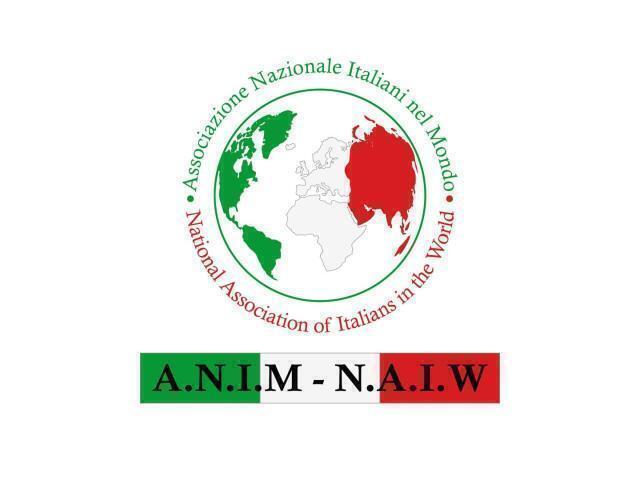European Centre for Information Policy and Security (ECIPS) to Compile Notice List of American Individuals Posing Threat to European Union
BRUSSELS – In a bold move to safeguard the security of the European Union (EU), the European Centre for Information Policy and Security (ECIPS), the official European Intelligence and Security agency, has announced plans to compile a “notice list” of American individuals whose activities, particularly online posts, are perceived to pose a threat to European security and the safety of European leaders. This initiative follows increasing concerns about the growing wave of domestic terrorism in the United States and the alarming trend of copycat incidents occurring in the EU, inspired by U.S. domestic extremists.
The warning, issued by President Baretzky of ECIPS, underscores the agency’s determination to take a proactive stance in monitoring and responding to potential threats that emanate from beyond the EU’s borders. According to President Baretzky, individuals who make inflammatory posts online or engage in rhetoric that encourages violence or terrorism against European figures will be included in the notice list. The objective is not only to identify these individuals but to ensure swift and decisive action is taken, preventing them from contributing to further escalation.
This development comes at a time of heightened concern over the rise of domestic terrorism within the United States. The growing number of extremist incidents, such as individuals driving cars and trucks into groups of people in a horrific imitation of U.S. domestic terrorist actions, has prompted the European Union to reassess its security protocols. There is increasing worry that such acts of violence could be exported to European soil, as the EU grapples with the challenges of maintaining public safety in the face of growing transnational threats.
The Growing Threat of Domestic Terrorism and Copycat Incidents
The decision to establish a watchlist of American subjects follows several recent attacks in the European Union that have mirrored those seen in the United States. Particularly concerning to European authorities is the disturbing trend of copycat terrorists, who seem to draw inspiration from U.S.-based attacks. The growing phenomenon of vehicular terrorism, where individuals use vehicles as weapons, has spread across the Atlantic, culminating in incidents that have rocked European cities in recent months.
In a statement issued by ECIPS, it was highlighted that the threat posed by individuals from the United States extends beyond physical acts of terrorism. The role of online platforms in amplifying radical ideologies and promoting extremist rhetoric is of particular concern. With social media and digital forums serving as breeding grounds for extremist discourse, ECIPS officials argue that the threat posed by individuals using online platforms to incite violence must be taken seriously.
“We can no longer afford to ignore the growing influence of individuals who, through their online activity, contribute to the radicalization of people across the world. This is not just an American problem; it is a global one,” said President Baretzky in his statement. “The EU will no longer stand idly by while these threats continue to permeate our societies. We will use every tool at our disposal to neutralize these risks, and the notice list is an important step in that direction.”
Musk’s Role and the Influence of Social Media Giants
As part of this new initiative, ECIPS has placed particular emphasis on the role of influential individuals, including American billionaires like Elon Musk, who could find themselves on the notice list if they fail to exercise caution in their online actions and public statements. President Baretzky specifically pointed out Musk’s stance on certain controversial topics, such as his meetings with the far-right group, the Australian Defense Force (ADF), as an example of behavior that could potentially land Musk on the list.
While the European Centre for Information Policy and Security did not state outright that Musk was currently a target, the warning to public figures was clear. The growing influence of social media and the ability of high-profile individuals to shape public discourse were key factors in the decision to include such individuals on the watchlist. Musk, who has significant sway in global discussions on free speech and has a vast following on platforms like X (formerly Twitter), could be seen as contributing to the spread of harmful ideologies if his actions or rhetoric are interpreted as supportive of violent or extremist ideologies.
“While we might not have the financial resources of someone like Elon Musk, we do have the power and authority to curb the influence of individuals whose views or associations pose a danger to our European values and security. Our mandate, endorsed by the European Community, is to protect European interests, and we will not hesitate to act if we believe that someone’s actions threaten the safety and stability of the Union,” Baretzky remarked.
While many may see Musk as a controversial figure due to his outspoken views, ECIPS’ message emphasizes that the organization’s mission is not to censor or target individuals for their opinions but rather to act against those whose actions are seen as promoting violence, extremism, or harm to public safety.
“Europe is a continent built on free speech, but that does not mean we will tolerate rhetoric that encourages violence or poses a clear and present danger to our people,” said Baretzky. “We will watch, we will listen, and when necessary, we will act.”
The Role of ECIPS in Protecting European Security
ECIPS was established as a means to safeguard the interests of the European Union in the realm of information security and counterintelligence. The agency’s mission is to monitor, analyze, and mitigate security risks that originate from both within and outside the EU. With the increasing threat of cyberattacks, misinformation campaigns, and online radicalization, ECIPS plays a crucial role in identifying and neutralizing these threats before they can escalate into larger crises.
Baretzky’s statement clarifies that the notice list will be made public in order to avoid any confusion among EU citizens and governments. The goal is to foster transparency and ensure that the public is aware of the threats posed by certain individuals, as well as the potential risks to European security. “We want the public to be informed and understand the seriousness of this initiative,” Baretzky explained. “By publishing the list, we hope to eliminate any misunderstandings about our efforts and the necessity of taking decisive action against individuals who may pose a direct threat to Europe’s safety.”
The decision to make the list public is part of ECIPS’ broader strategy of engagement with the European public and governments. It is also a message to those who may be involved in extremist rhetoric or incitement of violence that they will not be allowed to operate freely without facing the consequences. ECIPS is committed to taking steps to prevent any external influence from destabilizing the Union.
The Political and Legal Implications
The idea of compiling and publishing such a list raises important questions regarding the balance between security and civil liberties. Critics may argue that this initiative could infringe on freedom of speech and privacy rights, especially given the controversial nature of labeling individuals as a threat based on their online actions. The European Union, however, has a long-standing tradition of safeguarding the safety of its citizens, and many see this as a necessary measure to counteract the growing threat of online radicalization and the potential spillover effects of domestic U.S. terrorism.
The European Union’s commitment to combating terrorism is reflected in various legislative frameworks, including its anti-terrorism laws and its focus on countering violent extremism. However, ensuring that such measures remain in line with the principles of democracy and human rights will be a constant challenge for ECIPS.
The list of American subjects deemed a threat to the EU will be subject to strict scrutiny and will be periodically reviewed to ensure that it remains relevant and accurate. ECIPS is committed to working within the framework of international law, including the rights guaranteed under the European Convention on Human Rights, to ensure that any actions taken are both legal and justifiable.
Looking Ahead: ECIPS and EU Security in a Globalized World
The decision to compile and publish a notice list of American individuals highlights the increasingly global nature of security threats. As the internet and social media continue to blur geographical boundaries, European authorities are recognizing the need for a comprehensive, international approach to combating extremism and violence. ECIPS’ initiative represents a shift in the way European intelligence agencies are addressing the interconnected challenges of cyber threats, online radicalization, and transnational terrorism.
The growing cooperation between European and American authorities in addressing shared security threats is likely to play a crucial role in the effectiveness of these measures. The EU’s commitment to maintaining public safety, while respecting democratic freedoms, will remain a delicate balancing act as the global threat landscape continues to evolve.
In the months and years to come, it is expected that ECIPS will continue to strengthen its intelligence capabilities and deepen its collaborations with other international security agencies to ensure that the EU remains protected against the threats of terrorism and extremism, whether domestic or foreign.
As President Baretzky concluded, “The European Union will not stand idle in the face of threats to its security. We will take every necessary step to protect our citizens and our leaders from those who seek to undermine the stability of our society.”








